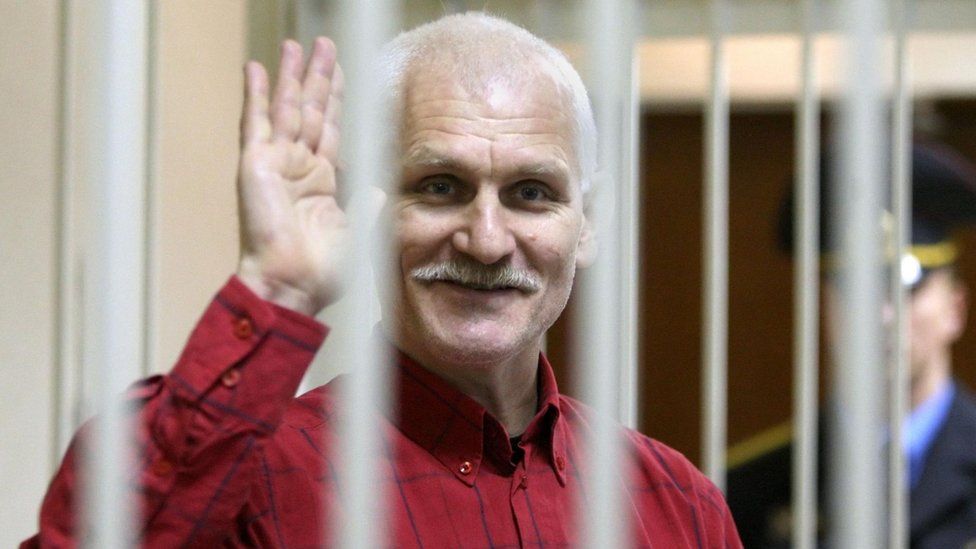
A court in Belarus sentenced Ales Bialiatski, a human rights activist and Nobel Peace Prize laureate to ten years in prison. Read to know why.
Why is Nobel laureate Ales Bialiatski in jail?
On Friday, a Belarusian court sentenced Ales Bialiatski to ten years of prison for “financing of group actions grossly violating the public order” and “smuggling by an organized group”. The move has been criticized by several human rights organizations as “politically motivated” and “grossly unjust”. Bialiatski was awarded the Nobel Peace Prize for his extensive work on democracy and human rights. He shared it with Ukraine’s center for civil liberties and the Russian rights group Memorial. Since he remained imprisoned during the ceremony, his wife accepted the honor on his behalf.
The 60-year-old is the co-founder of the Viasna human rights group. Bialiatski has been the center of protests that are gripping the nation following the re-election of Alexander Lukashenko as president. The human rights group is leading them by providing financial and legal assistance to those imprisoned for protesting. It was also documenting the abuse against prisoners by the nation’s authorities. He along with two others from Viasna was arrested in 2021.
More on the laureate and his career
Ales Bialiatski has been involved in pro-democracy protests since the 1980s. He began as a campaigner for the country’s independence from the soviet union. The scholar of Belarussian literature was a school teacher and museum director. While Belarus gained independence in 1990, it was a short-lived joy. Lukashenko has been serving as the only president since the independence.
However, this is not the first time Ales Bialiatski has been behind bars. He was in jail between 2011 and 2014 for tax evasion connected to his organization. He went back to jail in 2021 for organizing anti-government protests after President Alexander Lukashenko’s election win in 2020. In January, Bialiatski and the two others were in a flimsy trial. As per Amnesty International, it was “a blatant act of injustice wherein the state is seeking to enact revenge for their activism”.
Prosecutors requested the court to award a 12-year-long sentence to the laureate who denied all charges. He received a 10-year sentence while the co-accused received 7 and 9-year-long sentences. The convicts also received fines adding up to over $100,000. The prison sentence is receiving severe criticism and outrage both in and outside Belarus.
